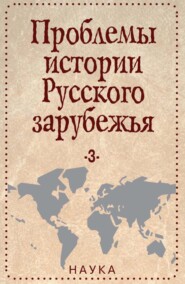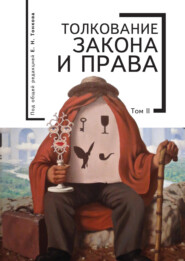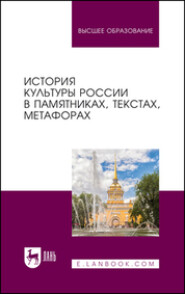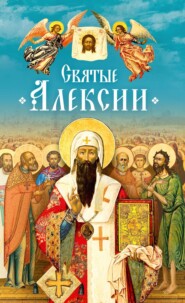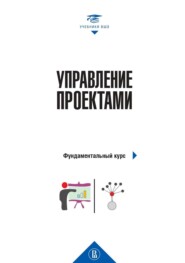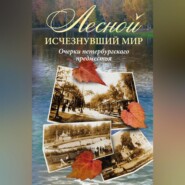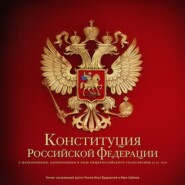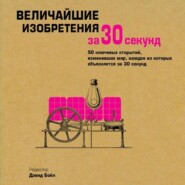По всем вопросам обращайтесь на: info@litportal.ru
(©) 2003-2024.
✖
20 лучших повестей на английском / 20 Best Short Novels
Настройки чтения
Размер шрифта
Высота строк
Поля
‘Not an imposture in the ordinary sense of the word. If suddenly I were to sink into a deep sleep, from which you could not awake me, but in that sleep could answer questions with an accuracy which I could not pretend to when awake, – tell you what money you had in your pocket, nay, describe your very thoughts, – it is not necessarily an imposture, any more than it is necessarily supernatural. I should be, unconsciously to myself, under a mesmeric[24 - mesmeric – hypnotic] influence, conveyed to me from a distance by a human being who had acquired power over me by previous rapport[25 - rapport = relationship].’
‘But if a mesmerizer could so affect another living being, can you suppose that a mesmerizer could also affect inanimate objects: move chairs, – open and shut doors?’
‘Or impress our senses with the belief in such effects, – we never having been en rapport[26 - en rapport = in close relationship] with the person acting on us? No. What is commonly called mesmerism could not do this; but there may be a power akin to mesmerism, and superior to it, – the power that in the old days was called Magic. That such a power may extend to all inanimate objects of matter, I do not say; but if so, it would not be against Nature, – it would be only a rare power in Nature which might be given to constitutions with certain peculiarities, and cultivated by practice to an extraordinary degree. That such a power might extend over the dead, – that is, over certain thoughts and memories that the dead may still retain, – and compel, not that which ought properly to be called the SOUL, and which is far beyond human reach, but rather a phantom of what has been most earth-stained on earth, to make itself apparent to our senses, is a very ancient though obsolete theory upon which I will hazard no opinion. But I do not conceive the power would be supernatural. Let me illustrate what I mean from an experiment which Paracelsus[27 - Paracelsus (1493–15410) – a Swiss doctor and alchemist who was the first to widely use the achievements of chemistry for treating patients] describes as not difficult, and which the author of the “Curiosities of Literature” cites as credible: A flower perishes; you burn it. Whatever were the elements of that flower while it lived are gone, dispersed, you know not whither; you can never discover nor re-collect them. But you can, by chemistry, out of the burned dust of that flower, raise a spectrum of the flower, just as it seemed in life. It may be the same with the human being. The soul has as much escaped you as the essence or elements of the flower. Still you may make a spectrum of it. And this phantom, though in the popular superstition it is held to be the soul of the departed, must not be confounded with the true soul; it is but the eidolon[28 - eidolon – a ghost or phantom (Greek)] of the dead form. Hence, like the best attested stories of ghosts or spirits, the thing that most strikes us is the absence of what we hold to be soul, – that is, of superior emancipated intelligence. These apparitions come for little or no object, – they seldom speak when they do come; if they speak, they utter no ideas above those of an ordinary person on earth. American spirit-seers have published volumes of communications, in prose and verse, which they assert to be given in the names of the most illustrious dead: Shakespeare, Bacon[29 - Bacon – Francis Bacon (1561–1626), a famous English philosopher, statesman, essayist and speaker], – Heaven knows whom. Those communications, taking the best, are certainly not a whit of higher order than would be communications from living persons of fair talent and education; they are wondrously inferior to what Bacon, Shakespeare, and Plato[30 - Plato (428 BC–348 BC) – an ancient Greek philosopher, founder of the Academy; he was the pupil of Socrates and the teacher of Aristotle.] said and wrote when on earth. Nor, what is more noticeable, do they ever contain an idea that was not on the earth before. Wonderful, therefore, as such phenomena may be (granting them to be truthful), I see much that philosophy may question, nothing that it is incumbent on philosophy to deny, – namely, nothing supernatural. They are but ideas conveyed somehow or other (we have not yet discovered the means) from one mortal brain to another. Whether, in so doing, tables walk of their own accord, or fiendlike shapes appear in a magic circle, or bodiless hands rise and remove material objects, or a Thing of Darkness, such as presented itself to me, freeze our blood, – still am I persuaded that these are but agencies conveyed, as by electric wires, to my own brain from the brain of another. In some constitutions there is a natural chemistry, and those constitutions may produce chemic wonders, – in others a natural fluid, call it electricity, and these may produce electric wonders. But the wonders differ from Normal Science in this, – they are alike objectless, purposeless, puerile, frivolous. They lead on to no grand results; and therefore the world does not heed, and true sages have not cultivated them. But sure I am, that of all I saw or heard, a man, human as myself, was the remote originator; and I believe unconsciously to himself as to the exact effects produced, for this reason: no two persons, you say, have ever told you that they experienced exactly the same thing. Well, observe, no two persons ever experience exactly the same dream. If this were an ordinary imposture, the machinery would be arranged for results that would but little vary; if it were a supernatural agency permitted by the Almighty[31 - the Almighty = God], it would surely be for some definite end. These phenomena belong to neither class; my persuasion is, that they originate in some brain now far distant; that that brain had no distinct volition in anything that occurred; that what does occur reflects but its devious, motley, ever-shifting, half-formed thoughts; in short, that it has been but the dreams of such a brain put into action and invested with a semi-substance. That this brain is of immense power, that it can set matter into movement, that it is malignant and destructive, I believe; some material force must have killed my dog; the same force might, for aught I know, have sufficed to kill myself, had I been as subjugated by terror as the dog, – had my intellect or my spirit given me no countervailing resistance in my will.’
‘It killed your dog, – that is fearful! Indeed it is strange that no animal can be induced to stay in that house; not even a cat. Bats and mice are never found in it.’
‘The instincts of the brute creation detect influences deadly to their existence. Man’s reason has a sense less subtle, because it has a resisting power more supreme. But enough; do you comprehend my theory?’
‘Yes, though imperfectly, – and I accept any crotchet[32 - crotchet – a strange and unreasonable idea] (pardon the word), however odd, rather than embrace at once the notion of ghosts and hobgoblins[33 - hobgoblins – in English and Scottish folklore, small malicious fairies which inhabit houses, mislead travelers, frighten people, spoil things, etc.] we imbibed in our nurseries. Still, to my unfortunate house, the evil is the same. What on earth can I do with the house?’
‘I will tell you what I would do. I am convinced from my own internal feelings that the small, unfurnished room at right angles to the door of the bed-room which I occupied, forms a starting-point or receptacle for the influences which haunt the house; and I strongly advise you to have the walls opened, the floor removed, – nay, the whole room pulled down. I observe that it is detached from the body of the house, built over the small backyard, and could be removed without injury to the rest of the building.’
‘And you think, if I did that—’
‘You would cut off the telegraph wires. Try it. I am so persuaded that I am right, that I will pay half the expense if you will allow me to direct the operations.’
‘Nay, I am well able to afford the cost; for the rest allow me to write to you.’
About ten days after I received a letter from Mr. J—, telling me that he had visited the house since I had seen him; that he had found the two letters I had described, replaced in the drawer from which I had taken them; that he had read them with misgivings like my own; that he had instituted a cautious inquiry about the woman to whom I rightly conjectured they had been written. It seemed that thirty-six years ago (a year before the date of the letters) she had married, against the wish of her relations, an American of very suspicious character; in fact, he was generally believed to have been a pirate. She herself was the daughter of very respectable tradespeople, and had served in the capacity of a nursery governess before her marriage. She had a brother, a widower, who was considered wealthy, and who had one child of about six years old. A month after the marriage the body of this brother was found in the Thames, near London Bridge; there seemed some marks of violence about his throat, but they were not deemed sufficient to warrant the inquest in any other verdict than that of ‘found drowned.’
The American and his wife took charge of the little boy, the deceased brother having by his will left his sister the guardian of his only child, – and in event of the child’s death the sister inherited. The child died about six months afterwards, – it was supposed to have been neglected and ill-treated. The neighbors deposed to have heard it shriek at night. The surgeon who had examined it after death said that it was emaciated as if from want of nourishment, and the body was covered with livid bruises. It seemed that one winter night the child had sought to escape; crept out into the backyard; tried to scale the wall; fallen back exhausted; and been found at morning on the stones in a dying state. But though there was some evidence of cruelty, there was none of murder; and the aunt and her husband had sought to palliate cruelty by alleging the exceeding stubbornness and perversity of the child, who was declared to be half-witted. Be that as it may, at the orphan’s death the aunt inherited her brother’s fortune. Before the first wedded year was out, the American quitted England abruptly, and never returned to it. He obtained a cruising vessel, which was lost in the Atlantic two years afterwards. The widow was left in affluence, but reverses of various kinds had befallen her: a bank broke; an investment failed; she went into a small business and became insolvent; then she entered into service, sinking lower and lower, from housekeeper down to maid-of-all-work, – never long retaining a place, though nothing decided against her character was ever alleged. She was considered sober, honest, and peculiarly quiet in her ways; still nothing prospered with her. And so she had dropped into the workhouse, from which Mr. J– had taken her, to be placed in charge of the very house which she had rented as mistress in the first year of her wedded life.
Mr. J– added that he had passed an hour alone in the unfurnished room which I had urged him to destroy, and that his impressions of dread while there were so great, though he had neither heard nor seen anything, that he was eager to have the walls bared and the floors removed as I had suggested. He had engaged persons for the work, and would commence any day I would name.
The day was accordingly fixed. I repaired to the haunted house, – we went into the blind, dreary room, took up the skirting, and then the floors. Under the rafters, covered with rubbish, was found a trap-door, quite large enough to admit a man. It was closely nailed down, with clamps and rivets of iron. On removing these we descended into a room below, the existence of which had never been suspected. In this room there had been a window and a flue, but they had been bricked over, evidently for many years. By the help of candles we examined this place; it still retained some mouldering furniture, – three chairs, an oak settle, a table, – all of the fashion of about eighty years ago. There was a chest of drawers against the wall, in which we found, half-rotted away, old-fashioned articles of a man’s dress, such as might have been worn eighty or a hundred years ago by a gentleman of some rank; costly steel buckles and buttons, like those yet worn in court-dresses, a handsome court sword; in a waistcoat which had once been rich with gold-lace, but which was now blackened and foul with damp, we found five guineas, a few silver coins, and an ivory ticket, probably for some place of entertainment long since passed away. But our main discovery was in a kind of iron safe fixed to the wall, the lock of which it cost us much trouble to get picked.
In this safe were three shelves and two small drawers. Ranged on the shelves were several small bottles of crystal, hermetically stopped. They contained colorless, volatile essences, of the nature of which I shall only say that they were not poisons, – phosphor and ammonia entered into some of them. There were also some very curious glass tubes, and a small pointed rod of iron, with a large lump of rock-crystal, and another of amber, – also a loadstone of great power.
In one of the drawers we found a miniature portrait set in gold, and retaining the freshness of its colors most remarkably, considering the length of time it had probably been there. The portrait was that of a man who might be somewhat advanced in middle life, perhaps forty-seven or forty-eight. It was a remarkable face, – a most impressive face. If you could fancy some mighty serpent transformed into man, preserving in the human lineaments the old serpent type, you would have a better idea of that countenance than long descriptions can convey: the width and flatness of frontal; the tapering elegance of contour disguising the strength of the deadly jaw; the long, large, terrible eye, glittering and green as the emerald, – and withal a certain ruthless calm, as if from the consciousness of an immense power.
Mechanically I turned round the miniature to examine the back of it, and on the back was engraved a pentacle[34 - pentacle – a magic geometrical figure]; in the middle of the pentacle a ladder, and the third step of the ladder was formed by the date 1765. Examining still more minutely, I detected a spring; this, on being pressed, opened the back of the miniature as a lid. Within-side the lid were engraved, ‘Marianna to thee. Be faithful in life and in death to—.’ Here follows a name that I will not mention, but it was not unfamiliar to me. I had heard it spoken of by old men in my childhood as the name borne by a dazzling charlatan who had made a great sensation in London for a year or so, and had fled the country on the charge of a double murder within his own house, – that of his mistress and his rival. I said nothing of this to Mr. J—, to whom reluctantly I resigned the miniature.
We had found no difficulty in opening the first drawer within the iron safe; we found great difficulty in opening the second: it was not locked, but it resisted all efforts, till we inserted in the chinks the edge of a chisel. When we had thus drawn it forth, we found a very singular apparatus in the nicest order. Upon a small, thin book, or rather tablet, was placed a saucer of crystal; this saucer was filled with a clear liquid, – on that liquid floated a kind of compass, with a needle shifting rapidly round; but instead of the usual points of a compass were seven strange characters, not very unlike those used by astrologers to denote the planets. A peculiar but not strong nor displeasing odor came from this drawer, which was lined with a wood that we afterwards discovered to be hazel. Whatever the cause of this odor, it produced a material effect on the nerves. We all felt it, even the two workmen who were in the room, – a creeping, tingling sensation from the tips of the fingers to the roots of the hair. Impatient to examine the tablet, I removed the saucer. As I did so the needle of the compass went round and round with exceeding swiftness, and I felt a shock that ran through my whole frame, so that I dropped the saucer on the floor. The liquid was spilled; the saucer was broken; the compass rolled to the end of the room, and at that instant the walls shook to and fro, as if a giant had swayed and rocked them.
The two workmen were so frightened that they ran up the ladder by which we had descended from the trapdoor; but seeing that nothing more happened, they were easily induced to return.
Meanwhile I had opened the tablet: it was bound in plain red leather, with a silver clasp; it contained but one sheet of thick vellum[35 - vellum – parchment], and on that sheet were inscribed, within a double pentacle, words in old monkish Latin, which are literally to be translated thus: ‘On all that it can reach within these walls, sentient or inanimate, living or dead, as moves the needle, so work my will! Accursed be the house, and restless be the dwellers therein.’
We found no more. Mr. J– burned the tablet and its anathema[36 - anathema – a formal declaration of the Church condemning smb. or smth.; a curse]. He razed to the foundations the part of the building containing the secret room with the chamber over it. He had then the courage to inhabit the house himself for a month, and a quieter, better-conditioned house could not be found in all London. Subsequently he let it to advantage, and his tenant has made no complaints.
Wilkie Collins
Dream Woman
The First Narrative
Introductory statement of the facts by Percy Fairbank
I
‘Hullo, there! Hostler! Hullo-o-o!’
‘My dear! why don’t you look for the bell?’
‘I have looked – there is no bell.’
‘And nobody in the yard. How very extraordinary! Call again, dear.’
‘Hostler! Hullo, there! Hostler-r-r!’
My second call echoes through empty space, and rouses nobody – produces, in short, no visible result. I am at the end of my resources – I don’t know what to say or what to do next. Here I stand in the solitary inn yard of a strange town, with two horses to hold, and a lady to take care of. By way of adding to my responsibilities, it so happens that one of the horses is dead lame, and that the lady is my wife.
Who am I? – you will ask.
There is plenty of time to answer the question. Nothing happens; and nobody appears to receive us. Let me introduce myself and my wife.
I am Percy Fairbank – English gentleman – age (let us say) forty – no profession – moderate politics – middle height – fair complexion – easy character – plenty of money.
My wife is a French lady. She was Mademoiselle Clotilde Delorge – when I was first presented to her at her father’s house in France. I fell in love with her – I really don’t know why. It might have been because I was perfectly idle, and had nothing else to do at the time. Or it might have been because all my friends said she was the very last woman whom I ought to think of marrying. On the surface, I must own, there is nothing in common between Mrs. Fairbank and me. She is tall; she is dark; she is nervous, excitable, romantic; in all her opinions she proceeds to extremes. What could such a woman see in me? what could I see in her? I know no more than you do. In some mysterious manner we exactly suit each other. We have been man and wife for ten years, and our only regret is, that we have no children. I don’t know what you may think; I call that – upon the whole – a happy marriage.
So much for ourselves. The next question is – what has brought us into the inn yard? and why am I obliged to turn groom, and hold the horses?
We live for the most part in France – at the country house in which my wife and I first met. Occasionally, by way of variety, we pay visits to my friends in England. We are paying one of those visits now. Our host is an old college friend of mine, possessed of a fine estate in Somersetshire[37 - Somersetshire – a historic county in the southwest of England]; and we have arrived at his house – called Farleigh Hall – toward the close of the hunting season.
On the day of which I am now writing – destined to be a memorable day in our calendar – the hounds meet at Farleigh Hall. Mrs. Fairbank and I are mounted on two of the best horses in my friend’s stables. We are quite unworthy of that distinction; for we know nothing and care nothing about hunting. On the other hand, we delight in riding, and we enjoy the breezy spring morning and the fair and fertile English landscape surrounding us on every side. While the hunt prospers, we follow the hunt. But when a check occurs – when time passes and patience is sorely tried; when the bewildered dogs run hither and thither, and strong language falls from the lips of exasperated sportsmen – we fail to take any further interest in the proceedings. We turn our horses’ heads in the direction of a grassy lane, delightfully shaded by trees. We trot merrily along the lane, and find ourselves on an open common. We gallop across the common, and follow the windings of a second lane. We cross a brook, we pass through a village, we emerge into pastoral solitude among the hills. The horses toss their heads, and neigh to each other, and enjoy it as much as we do. The hunt is forgotten. We are as happy as a couple of children; we are actually singing a French song – when in one moment our merriment comes to an end. My wife’s horse sets one of his forefeet on a loose stone, and stumbles. His rider’s ready hand saves him from falling. But, at the first attempt he makes to go on, the sad truth shows itself – a tendon is strained; the horse is lame.
What is to be done? We are strangers in a lonely part of the country. Look where we may, we see no signs of a human habitation. There is nothing for it but to take the bridle road up the hill, and try what we can discover on the other side. I transfer the saddles, and mount my wife on my own horse. He is not used to carry a lady; he misses the familiar pressure of a man’s legs on either side of him; he fidgets, and starts, and kicks up the dust. I follow on foot, at a respectful distance from his heels, leading the lame horse. Is there a more miserable object on the face of creation than a lame horse? I have seen lame men and lame dogs who were cheerful creatures; but I never yet saw a lame horse who didn’t look heartbroken over his own misfortune.
For half an hour my wife capers and curvets sideways along the bridle road. I trudge on behind her; and the heartbroken horse halts behind me. Hard by the top of the hill, our melancholy procession passes a Somersetshire peasant at work in a field. I summon the man to approach us; and the man looks at me stolidly, from the middle of the field, without stirring a step. I ask at the top of my voice how far it is to Farleigh Hall. The Somersetshire peasant answers at the top of his voice:
‘Vourteen mile. Gi’ oi a drap o’ zyder.’
I translate (for my wife’s benefit) from the Somersetshire language into the English language. We are fourteen miles from Farleigh Hall; and our friend in the field desires to be rewarded, for giving us that information, with a drop of cider. There is the peasant, painted by himself! Quite a bit of character, my dear! Quite a bit of character!
Mrs. Fairbank doesn’t view the study of agricultural human nature with my relish. Her fidgety horse will not allow her a moment’s repose; she is beginning to lose her temper.
‘We can’t go fourteen miles in this way,’ she says. ‘Where is the nearest inn? Ask that brute in the field!’
I take a shilling from my pocket and hold it up in the sun. The shilling exercises magnetic virtues. The shilling draws the peasant slowly toward me from the middle of the field. I inform him that we want to put up the horses and to hire a carriage to take us back to Farleigh Hall. Where can we do that? The peasant answers (with his eye on the shilling):
‘At Oonderbridge, to be zure.’ (At Underbridge, to be sure.)
‘Is it far to Underbridge?’
The peasant repeats, ‘Var to Oonderbridge?’ – and laughs at the question. ‘Hoo-hoo-hoo!’ (Underbridge is evidently close by – if we could only find it.) ‘Will you show us the way, my man?’ ‘Will you gi’ oi a drap of zyder?’ I courteously bend my head, and point to the shilling. The agricultural intelligence exerts itself. The peasant joins our melancholy procession. My wife is a fine woman, but he never once looks at my wife – and, more extraordinary still, he never even looks at the horses. His eyes are with his mind – and his mind is on the shilling.
We reach the top of the hill – and, behold on the other side, nestling in a valley, the shrine of our pilgrimage, the town of Underbridge! Here our guide claims his shilling, and leaves us to find out the inn for ourselves. I am constitutionally a polite man. I say ‘Good morning’ at parting. The guide looks at me with the shilling between his teeth to make sure that it is a good one. ‘Marnin!’ he says savagely – and turns his back on us, as if we had offended him. A curious product, this, of the growth of civilization. If I didn’t see a church spire at Underbridge, I might suppose that we had lost ourselves on a savage island.
‘But if a mesmerizer could so affect another living being, can you suppose that a mesmerizer could also affect inanimate objects: move chairs, – open and shut doors?’
‘Or impress our senses with the belief in such effects, – we never having been en rapport[26 - en rapport = in close relationship] with the person acting on us? No. What is commonly called mesmerism could not do this; but there may be a power akin to mesmerism, and superior to it, – the power that in the old days was called Magic. That such a power may extend to all inanimate objects of matter, I do not say; but if so, it would not be against Nature, – it would be only a rare power in Nature which might be given to constitutions with certain peculiarities, and cultivated by practice to an extraordinary degree. That such a power might extend over the dead, – that is, over certain thoughts and memories that the dead may still retain, – and compel, not that which ought properly to be called the SOUL, and which is far beyond human reach, but rather a phantom of what has been most earth-stained on earth, to make itself apparent to our senses, is a very ancient though obsolete theory upon which I will hazard no opinion. But I do not conceive the power would be supernatural. Let me illustrate what I mean from an experiment which Paracelsus[27 - Paracelsus (1493–15410) – a Swiss doctor and alchemist who was the first to widely use the achievements of chemistry for treating patients] describes as not difficult, and which the author of the “Curiosities of Literature” cites as credible: A flower perishes; you burn it. Whatever were the elements of that flower while it lived are gone, dispersed, you know not whither; you can never discover nor re-collect them. But you can, by chemistry, out of the burned dust of that flower, raise a spectrum of the flower, just as it seemed in life. It may be the same with the human being. The soul has as much escaped you as the essence or elements of the flower. Still you may make a spectrum of it. And this phantom, though in the popular superstition it is held to be the soul of the departed, must not be confounded with the true soul; it is but the eidolon[28 - eidolon – a ghost or phantom (Greek)] of the dead form. Hence, like the best attested stories of ghosts or spirits, the thing that most strikes us is the absence of what we hold to be soul, – that is, of superior emancipated intelligence. These apparitions come for little or no object, – they seldom speak when they do come; if they speak, they utter no ideas above those of an ordinary person on earth. American spirit-seers have published volumes of communications, in prose and verse, which they assert to be given in the names of the most illustrious dead: Shakespeare, Bacon[29 - Bacon – Francis Bacon (1561–1626), a famous English philosopher, statesman, essayist and speaker], – Heaven knows whom. Those communications, taking the best, are certainly not a whit of higher order than would be communications from living persons of fair talent and education; they are wondrously inferior to what Bacon, Shakespeare, and Plato[30 - Plato (428 BC–348 BC) – an ancient Greek philosopher, founder of the Academy; he was the pupil of Socrates and the teacher of Aristotle.] said and wrote when on earth. Nor, what is more noticeable, do they ever contain an idea that was not on the earth before. Wonderful, therefore, as such phenomena may be (granting them to be truthful), I see much that philosophy may question, nothing that it is incumbent on philosophy to deny, – namely, nothing supernatural. They are but ideas conveyed somehow or other (we have not yet discovered the means) from one mortal brain to another. Whether, in so doing, tables walk of their own accord, or fiendlike shapes appear in a magic circle, or bodiless hands rise and remove material objects, or a Thing of Darkness, such as presented itself to me, freeze our blood, – still am I persuaded that these are but agencies conveyed, as by electric wires, to my own brain from the brain of another. In some constitutions there is a natural chemistry, and those constitutions may produce chemic wonders, – in others a natural fluid, call it electricity, and these may produce electric wonders. But the wonders differ from Normal Science in this, – they are alike objectless, purposeless, puerile, frivolous. They lead on to no grand results; and therefore the world does not heed, and true sages have not cultivated them. But sure I am, that of all I saw or heard, a man, human as myself, was the remote originator; and I believe unconsciously to himself as to the exact effects produced, for this reason: no two persons, you say, have ever told you that they experienced exactly the same thing. Well, observe, no two persons ever experience exactly the same dream. If this were an ordinary imposture, the machinery would be arranged for results that would but little vary; if it were a supernatural agency permitted by the Almighty[31 - the Almighty = God], it would surely be for some definite end. These phenomena belong to neither class; my persuasion is, that they originate in some brain now far distant; that that brain had no distinct volition in anything that occurred; that what does occur reflects but its devious, motley, ever-shifting, half-formed thoughts; in short, that it has been but the dreams of such a brain put into action and invested with a semi-substance. That this brain is of immense power, that it can set matter into movement, that it is malignant and destructive, I believe; some material force must have killed my dog; the same force might, for aught I know, have sufficed to kill myself, had I been as subjugated by terror as the dog, – had my intellect or my spirit given me no countervailing resistance in my will.’
‘It killed your dog, – that is fearful! Indeed it is strange that no animal can be induced to stay in that house; not even a cat. Bats and mice are never found in it.’
‘The instincts of the brute creation detect influences deadly to their existence. Man’s reason has a sense less subtle, because it has a resisting power more supreme. But enough; do you comprehend my theory?’
‘Yes, though imperfectly, – and I accept any crotchet[32 - crotchet – a strange and unreasonable idea] (pardon the word), however odd, rather than embrace at once the notion of ghosts and hobgoblins[33 - hobgoblins – in English and Scottish folklore, small malicious fairies which inhabit houses, mislead travelers, frighten people, spoil things, etc.] we imbibed in our nurseries. Still, to my unfortunate house, the evil is the same. What on earth can I do with the house?’
‘I will tell you what I would do. I am convinced from my own internal feelings that the small, unfurnished room at right angles to the door of the bed-room which I occupied, forms a starting-point or receptacle for the influences which haunt the house; and I strongly advise you to have the walls opened, the floor removed, – nay, the whole room pulled down. I observe that it is detached from the body of the house, built over the small backyard, and could be removed without injury to the rest of the building.’
‘And you think, if I did that—’
‘You would cut off the telegraph wires. Try it. I am so persuaded that I am right, that I will pay half the expense if you will allow me to direct the operations.’
‘Nay, I am well able to afford the cost; for the rest allow me to write to you.’
About ten days after I received a letter from Mr. J—, telling me that he had visited the house since I had seen him; that he had found the two letters I had described, replaced in the drawer from which I had taken them; that he had read them with misgivings like my own; that he had instituted a cautious inquiry about the woman to whom I rightly conjectured they had been written. It seemed that thirty-six years ago (a year before the date of the letters) she had married, against the wish of her relations, an American of very suspicious character; in fact, he was generally believed to have been a pirate. She herself was the daughter of very respectable tradespeople, and had served in the capacity of a nursery governess before her marriage. She had a brother, a widower, who was considered wealthy, and who had one child of about six years old. A month after the marriage the body of this brother was found in the Thames, near London Bridge; there seemed some marks of violence about his throat, but they were not deemed sufficient to warrant the inquest in any other verdict than that of ‘found drowned.’
The American and his wife took charge of the little boy, the deceased brother having by his will left his sister the guardian of his only child, – and in event of the child’s death the sister inherited. The child died about six months afterwards, – it was supposed to have been neglected and ill-treated. The neighbors deposed to have heard it shriek at night. The surgeon who had examined it after death said that it was emaciated as if from want of nourishment, and the body was covered with livid bruises. It seemed that one winter night the child had sought to escape; crept out into the backyard; tried to scale the wall; fallen back exhausted; and been found at morning on the stones in a dying state. But though there was some evidence of cruelty, there was none of murder; and the aunt and her husband had sought to palliate cruelty by alleging the exceeding stubbornness and perversity of the child, who was declared to be half-witted. Be that as it may, at the orphan’s death the aunt inherited her brother’s fortune. Before the first wedded year was out, the American quitted England abruptly, and never returned to it. He obtained a cruising vessel, which was lost in the Atlantic two years afterwards. The widow was left in affluence, but reverses of various kinds had befallen her: a bank broke; an investment failed; she went into a small business and became insolvent; then she entered into service, sinking lower and lower, from housekeeper down to maid-of-all-work, – never long retaining a place, though nothing decided against her character was ever alleged. She was considered sober, honest, and peculiarly quiet in her ways; still nothing prospered with her. And so she had dropped into the workhouse, from which Mr. J– had taken her, to be placed in charge of the very house which she had rented as mistress in the first year of her wedded life.
Mr. J– added that he had passed an hour alone in the unfurnished room which I had urged him to destroy, and that his impressions of dread while there were so great, though he had neither heard nor seen anything, that he was eager to have the walls bared and the floors removed as I had suggested. He had engaged persons for the work, and would commence any day I would name.
The day was accordingly fixed. I repaired to the haunted house, – we went into the blind, dreary room, took up the skirting, and then the floors. Under the rafters, covered with rubbish, was found a trap-door, quite large enough to admit a man. It was closely nailed down, with clamps and rivets of iron. On removing these we descended into a room below, the existence of which had never been suspected. In this room there had been a window and a flue, but they had been bricked over, evidently for many years. By the help of candles we examined this place; it still retained some mouldering furniture, – three chairs, an oak settle, a table, – all of the fashion of about eighty years ago. There was a chest of drawers against the wall, in which we found, half-rotted away, old-fashioned articles of a man’s dress, such as might have been worn eighty or a hundred years ago by a gentleman of some rank; costly steel buckles and buttons, like those yet worn in court-dresses, a handsome court sword; in a waistcoat which had once been rich with gold-lace, but which was now blackened and foul with damp, we found five guineas, a few silver coins, and an ivory ticket, probably for some place of entertainment long since passed away. But our main discovery was in a kind of iron safe fixed to the wall, the lock of which it cost us much trouble to get picked.
In this safe were three shelves and two small drawers. Ranged on the shelves were several small bottles of crystal, hermetically stopped. They contained colorless, volatile essences, of the nature of which I shall only say that they were not poisons, – phosphor and ammonia entered into some of them. There were also some very curious glass tubes, and a small pointed rod of iron, with a large lump of rock-crystal, and another of amber, – also a loadstone of great power.
In one of the drawers we found a miniature portrait set in gold, and retaining the freshness of its colors most remarkably, considering the length of time it had probably been there. The portrait was that of a man who might be somewhat advanced in middle life, perhaps forty-seven or forty-eight. It was a remarkable face, – a most impressive face. If you could fancy some mighty serpent transformed into man, preserving in the human lineaments the old serpent type, you would have a better idea of that countenance than long descriptions can convey: the width and flatness of frontal; the tapering elegance of contour disguising the strength of the deadly jaw; the long, large, terrible eye, glittering and green as the emerald, – and withal a certain ruthless calm, as if from the consciousness of an immense power.
Mechanically I turned round the miniature to examine the back of it, and on the back was engraved a pentacle[34 - pentacle – a magic geometrical figure]; in the middle of the pentacle a ladder, and the third step of the ladder was formed by the date 1765. Examining still more minutely, I detected a spring; this, on being pressed, opened the back of the miniature as a lid. Within-side the lid were engraved, ‘Marianna to thee. Be faithful in life and in death to—.’ Here follows a name that I will not mention, but it was not unfamiliar to me. I had heard it spoken of by old men in my childhood as the name borne by a dazzling charlatan who had made a great sensation in London for a year or so, and had fled the country on the charge of a double murder within his own house, – that of his mistress and his rival. I said nothing of this to Mr. J—, to whom reluctantly I resigned the miniature.
We had found no difficulty in opening the first drawer within the iron safe; we found great difficulty in opening the second: it was not locked, but it resisted all efforts, till we inserted in the chinks the edge of a chisel. When we had thus drawn it forth, we found a very singular apparatus in the nicest order. Upon a small, thin book, or rather tablet, was placed a saucer of crystal; this saucer was filled with a clear liquid, – on that liquid floated a kind of compass, with a needle shifting rapidly round; but instead of the usual points of a compass were seven strange characters, not very unlike those used by astrologers to denote the planets. A peculiar but not strong nor displeasing odor came from this drawer, which was lined with a wood that we afterwards discovered to be hazel. Whatever the cause of this odor, it produced a material effect on the nerves. We all felt it, even the two workmen who were in the room, – a creeping, tingling sensation from the tips of the fingers to the roots of the hair. Impatient to examine the tablet, I removed the saucer. As I did so the needle of the compass went round and round with exceeding swiftness, and I felt a shock that ran through my whole frame, so that I dropped the saucer on the floor. The liquid was spilled; the saucer was broken; the compass rolled to the end of the room, and at that instant the walls shook to and fro, as if a giant had swayed and rocked them.
The two workmen were so frightened that they ran up the ladder by which we had descended from the trapdoor; but seeing that nothing more happened, they were easily induced to return.
Meanwhile I had opened the tablet: it was bound in plain red leather, with a silver clasp; it contained but one sheet of thick vellum[35 - vellum – parchment], and on that sheet were inscribed, within a double pentacle, words in old monkish Latin, which are literally to be translated thus: ‘On all that it can reach within these walls, sentient or inanimate, living or dead, as moves the needle, so work my will! Accursed be the house, and restless be the dwellers therein.’
We found no more. Mr. J– burned the tablet and its anathema[36 - anathema – a formal declaration of the Church condemning smb. or smth.; a curse]. He razed to the foundations the part of the building containing the secret room with the chamber over it. He had then the courage to inhabit the house himself for a month, and a quieter, better-conditioned house could not be found in all London. Subsequently he let it to advantage, and his tenant has made no complaints.
Wilkie Collins
Dream Woman
The First Narrative
Introductory statement of the facts by Percy Fairbank
I
‘Hullo, there! Hostler! Hullo-o-o!’
‘My dear! why don’t you look for the bell?’
‘I have looked – there is no bell.’
‘And nobody in the yard. How very extraordinary! Call again, dear.’
‘Hostler! Hullo, there! Hostler-r-r!’
My second call echoes through empty space, and rouses nobody – produces, in short, no visible result. I am at the end of my resources – I don’t know what to say or what to do next. Here I stand in the solitary inn yard of a strange town, with two horses to hold, and a lady to take care of. By way of adding to my responsibilities, it so happens that one of the horses is dead lame, and that the lady is my wife.
Who am I? – you will ask.
There is plenty of time to answer the question. Nothing happens; and nobody appears to receive us. Let me introduce myself and my wife.
I am Percy Fairbank – English gentleman – age (let us say) forty – no profession – moderate politics – middle height – fair complexion – easy character – plenty of money.
My wife is a French lady. She was Mademoiselle Clotilde Delorge – when I was first presented to her at her father’s house in France. I fell in love with her – I really don’t know why. It might have been because I was perfectly idle, and had nothing else to do at the time. Or it might have been because all my friends said she was the very last woman whom I ought to think of marrying. On the surface, I must own, there is nothing in common between Mrs. Fairbank and me. She is tall; she is dark; she is nervous, excitable, romantic; in all her opinions she proceeds to extremes. What could such a woman see in me? what could I see in her? I know no more than you do. In some mysterious manner we exactly suit each other. We have been man and wife for ten years, and our only regret is, that we have no children. I don’t know what you may think; I call that – upon the whole – a happy marriage.
So much for ourselves. The next question is – what has brought us into the inn yard? and why am I obliged to turn groom, and hold the horses?
We live for the most part in France – at the country house in which my wife and I first met. Occasionally, by way of variety, we pay visits to my friends in England. We are paying one of those visits now. Our host is an old college friend of mine, possessed of a fine estate in Somersetshire[37 - Somersetshire – a historic county in the southwest of England]; and we have arrived at his house – called Farleigh Hall – toward the close of the hunting season.
On the day of which I am now writing – destined to be a memorable day in our calendar – the hounds meet at Farleigh Hall. Mrs. Fairbank and I are mounted on two of the best horses in my friend’s stables. We are quite unworthy of that distinction; for we know nothing and care nothing about hunting. On the other hand, we delight in riding, and we enjoy the breezy spring morning and the fair and fertile English landscape surrounding us on every side. While the hunt prospers, we follow the hunt. But when a check occurs – when time passes and patience is sorely tried; when the bewildered dogs run hither and thither, and strong language falls from the lips of exasperated sportsmen – we fail to take any further interest in the proceedings. We turn our horses’ heads in the direction of a grassy lane, delightfully shaded by trees. We trot merrily along the lane, and find ourselves on an open common. We gallop across the common, and follow the windings of a second lane. We cross a brook, we pass through a village, we emerge into pastoral solitude among the hills. The horses toss their heads, and neigh to each other, and enjoy it as much as we do. The hunt is forgotten. We are as happy as a couple of children; we are actually singing a French song – when in one moment our merriment comes to an end. My wife’s horse sets one of his forefeet on a loose stone, and stumbles. His rider’s ready hand saves him from falling. But, at the first attempt he makes to go on, the sad truth shows itself – a tendon is strained; the horse is lame.
What is to be done? We are strangers in a lonely part of the country. Look where we may, we see no signs of a human habitation. There is nothing for it but to take the bridle road up the hill, and try what we can discover on the other side. I transfer the saddles, and mount my wife on my own horse. He is not used to carry a lady; he misses the familiar pressure of a man’s legs on either side of him; he fidgets, and starts, and kicks up the dust. I follow on foot, at a respectful distance from his heels, leading the lame horse. Is there a more miserable object on the face of creation than a lame horse? I have seen lame men and lame dogs who were cheerful creatures; but I never yet saw a lame horse who didn’t look heartbroken over his own misfortune.
For half an hour my wife capers and curvets sideways along the bridle road. I trudge on behind her; and the heartbroken horse halts behind me. Hard by the top of the hill, our melancholy procession passes a Somersetshire peasant at work in a field. I summon the man to approach us; and the man looks at me stolidly, from the middle of the field, without stirring a step. I ask at the top of my voice how far it is to Farleigh Hall. The Somersetshire peasant answers at the top of his voice:
‘Vourteen mile. Gi’ oi a drap o’ zyder.’
I translate (for my wife’s benefit) from the Somersetshire language into the English language. We are fourteen miles from Farleigh Hall; and our friend in the field desires to be rewarded, for giving us that information, with a drop of cider. There is the peasant, painted by himself! Quite a bit of character, my dear! Quite a bit of character!
Mrs. Fairbank doesn’t view the study of agricultural human nature with my relish. Her fidgety horse will not allow her a moment’s repose; she is beginning to lose her temper.
‘We can’t go fourteen miles in this way,’ she says. ‘Where is the nearest inn? Ask that brute in the field!’
I take a shilling from my pocket and hold it up in the sun. The shilling exercises magnetic virtues. The shilling draws the peasant slowly toward me from the middle of the field. I inform him that we want to put up the horses and to hire a carriage to take us back to Farleigh Hall. Where can we do that? The peasant answers (with his eye on the shilling):
‘At Oonderbridge, to be zure.’ (At Underbridge, to be sure.)
‘Is it far to Underbridge?’
The peasant repeats, ‘Var to Oonderbridge?’ – and laughs at the question. ‘Hoo-hoo-hoo!’ (Underbridge is evidently close by – if we could only find it.) ‘Will you show us the way, my man?’ ‘Will you gi’ oi a drap of zyder?’ I courteously bend my head, and point to the shilling. The agricultural intelligence exerts itself. The peasant joins our melancholy procession. My wife is a fine woman, but he never once looks at my wife – and, more extraordinary still, he never even looks at the horses. His eyes are with his mind – and his mind is on the shilling.
We reach the top of the hill – and, behold on the other side, nestling in a valley, the shrine of our pilgrimage, the town of Underbridge! Here our guide claims his shilling, and leaves us to find out the inn for ourselves. I am constitutionally a polite man. I say ‘Good morning’ at parting. The guide looks at me with the shilling between his teeth to make sure that it is a good one. ‘Marnin!’ he says savagely – and turns his back on us, as if we had offended him. A curious product, this, of the growth of civilization. If I didn’t see a church spire at Underbridge, I might suppose that we had lost ourselves on a savage island.






